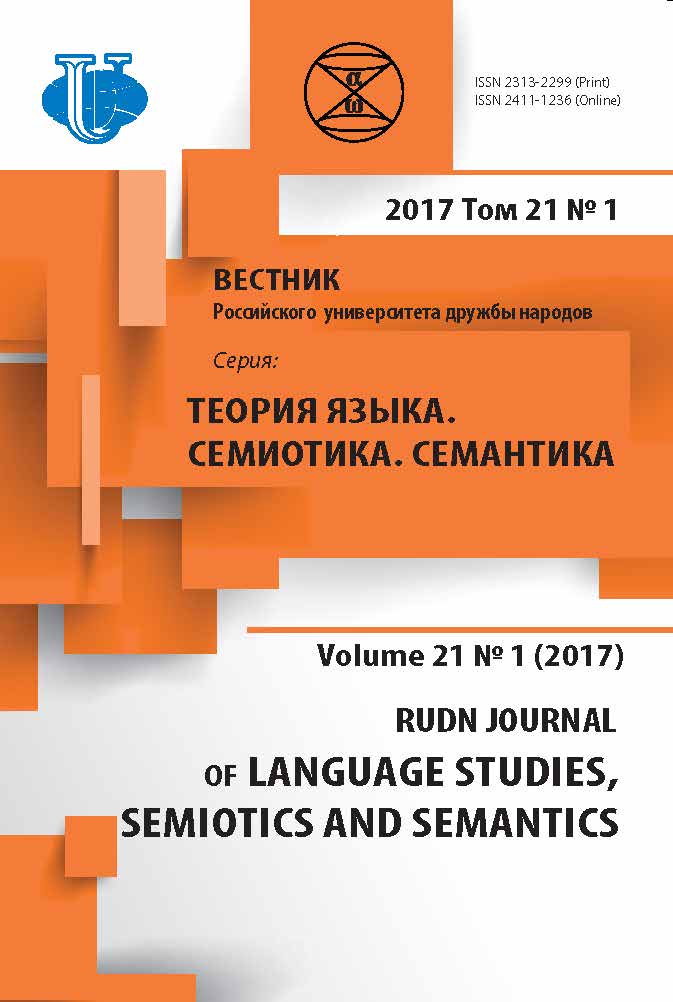Communikemes with «evaluative» meaning: etymological aspect (based on the English language material)
- Authors: Melikyan VY1, Melikyan AV1
-
Affiliations:
- Southern Federal University
- Issue: Vol 8, No 1 (2017)
- Pages: 78-88
- Section: ARTICLES
- URL: https://journals.rudn.ru/semiotics-semantics/article/view/15612
- DOI: https://doi.org/10.22363/2313-2299-2017-8-1-78-88
- ID: 15612
Cite item
Full Text
Abstract
The paper is dedicated to the description of principles, mechanisms and models of communikemes construction with «evaluative» meaning. The research is fulfilled on the basis of the English language. The results correlate with those that were obtained while studying this type of units on the basis of the Russian language. At that, the integral and differential characteristics are identified, which makes the research results significant not only in the aspect of special (Germanic) linguistics but the general linguistics as well. Communikemes are the separate class of syntactic phraseological units. They function in many languages including English. Communikemes are extremely active in the oral-colloquial communication form due to their anthropocentricity, expressivity and economy. The majority of communikemes are derivative. Many of their specific features are determined by the peculiarities of the productive base. That is why the communikemes research in the etymological aspect provides insight into the essence of their linguistic nature and the rules of speech realization. In the sphere of evaluative communikemes two basic models of their construction are established: the first one is based on the actual division of the sentence (it prevails), and the second one is logical-semantic one. In whole, the amount of evaluative communikemes in the English language is more than the communikemes with the positive/negative meaning. The evaluative communikemes in both languages are more «indifferent» to the character of the grammatical meaning of their productive base (in comparison with other semantic groups units). The evaluative communikemes study in the cognitive and psycholinguistic aspects (as well as other groups) is rather perspective.
About the authors
V Y Melikyan
Southern Federal University
Email: melikyanv@mail.ru
B. Sadovaya str., 105/42, Rostov-on-Don, 344006
A V Melikyan
Southern Federal University
Email: melikyan.anna@mail.ru
B. Sadovaya str., 105/42, Rostov-on-Don, 344006
References
Supplementary files












